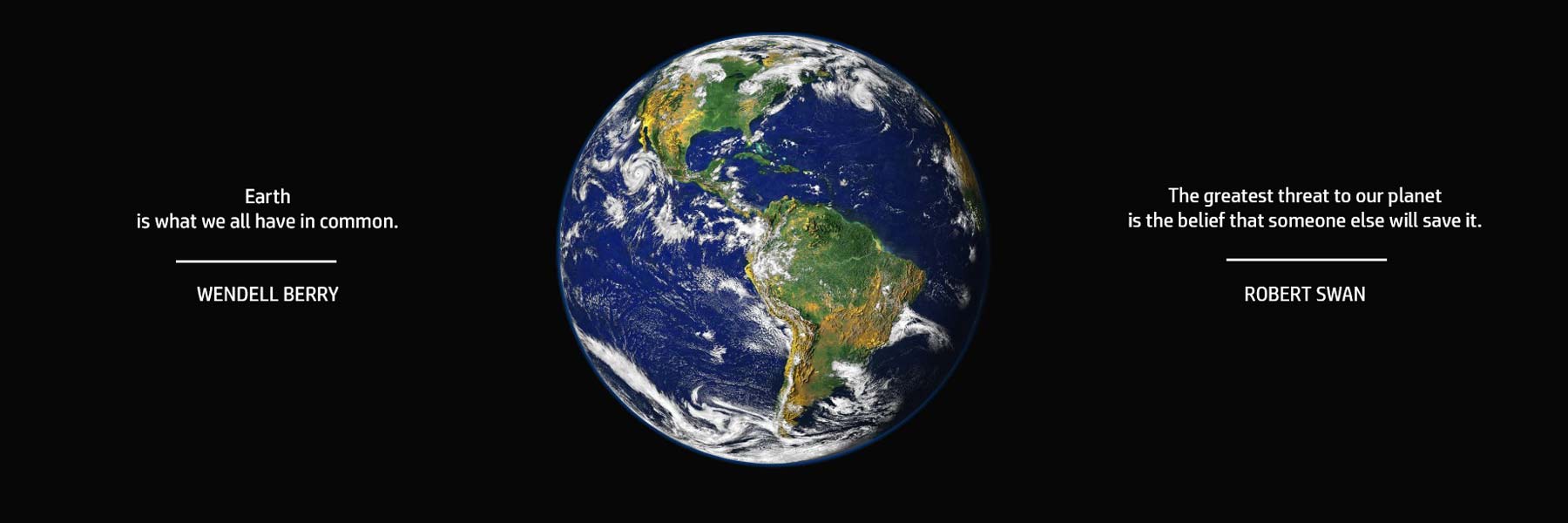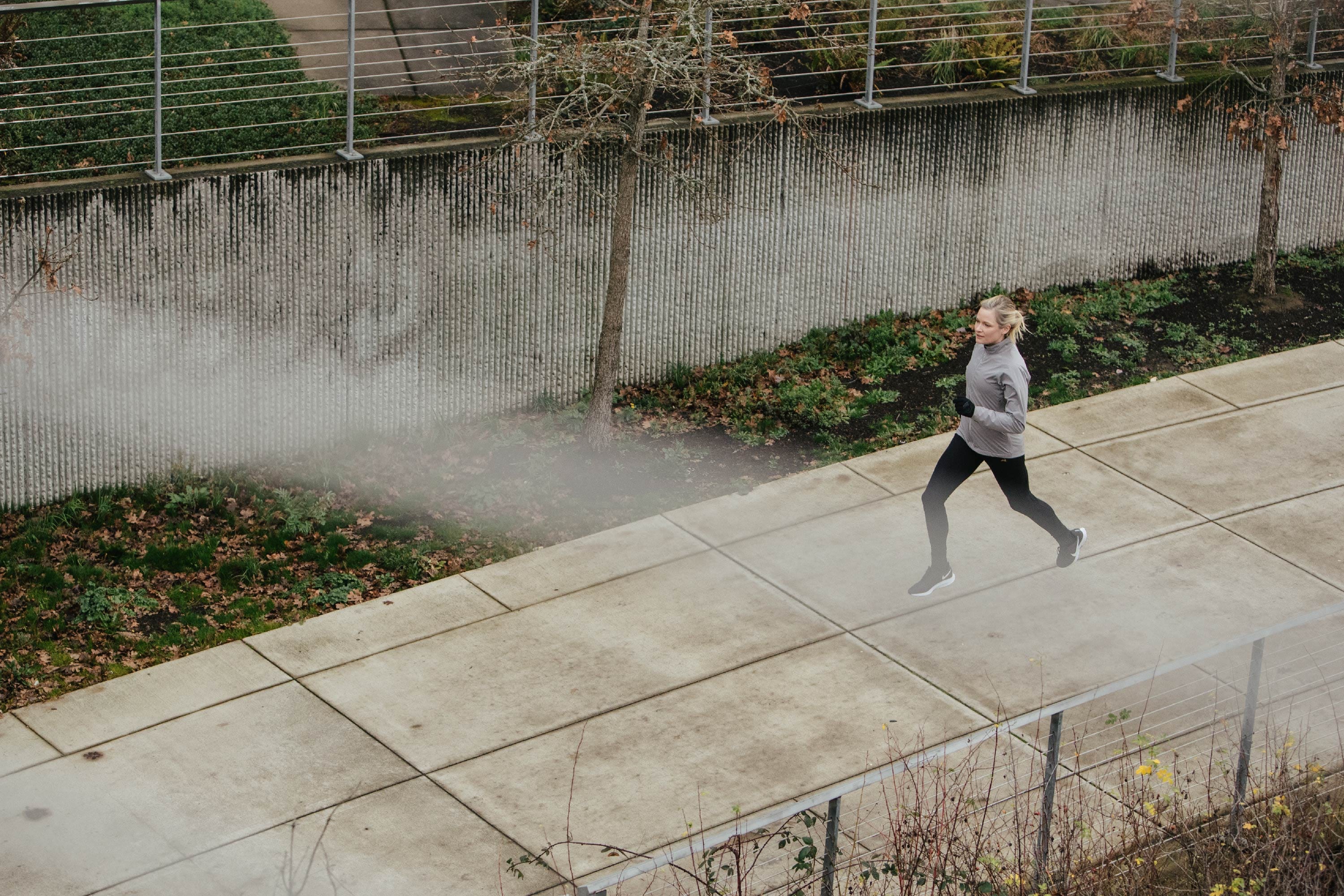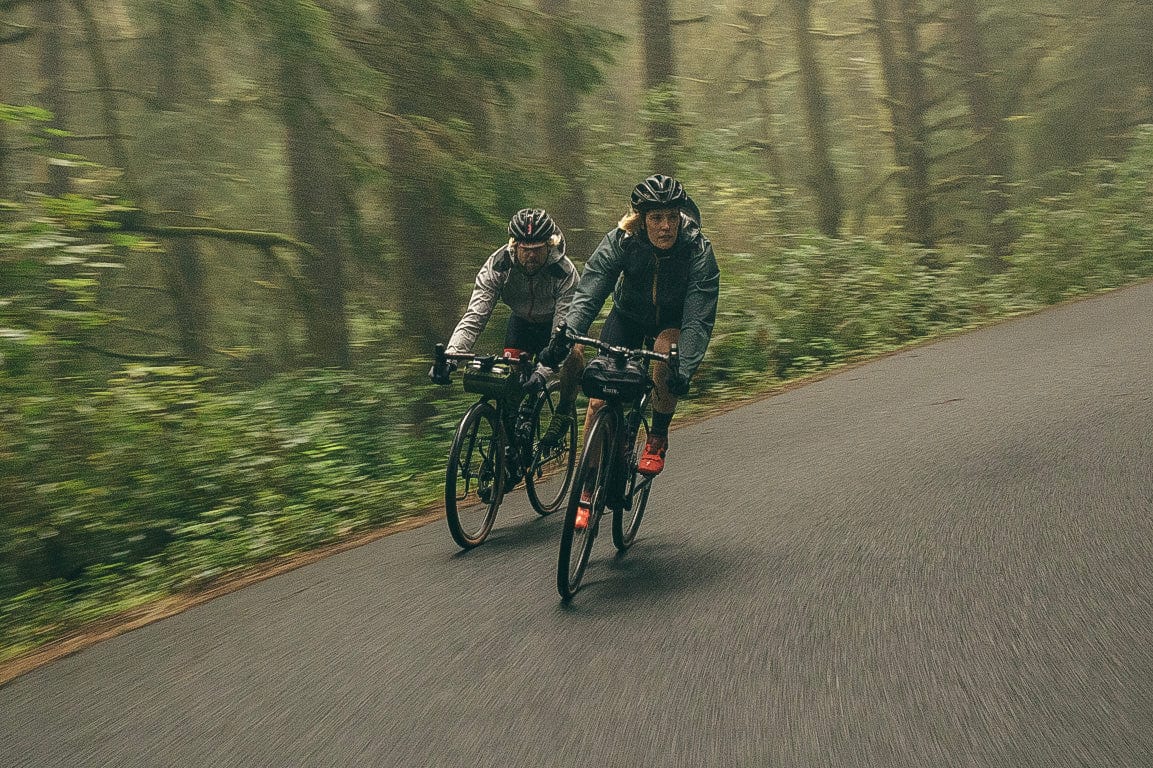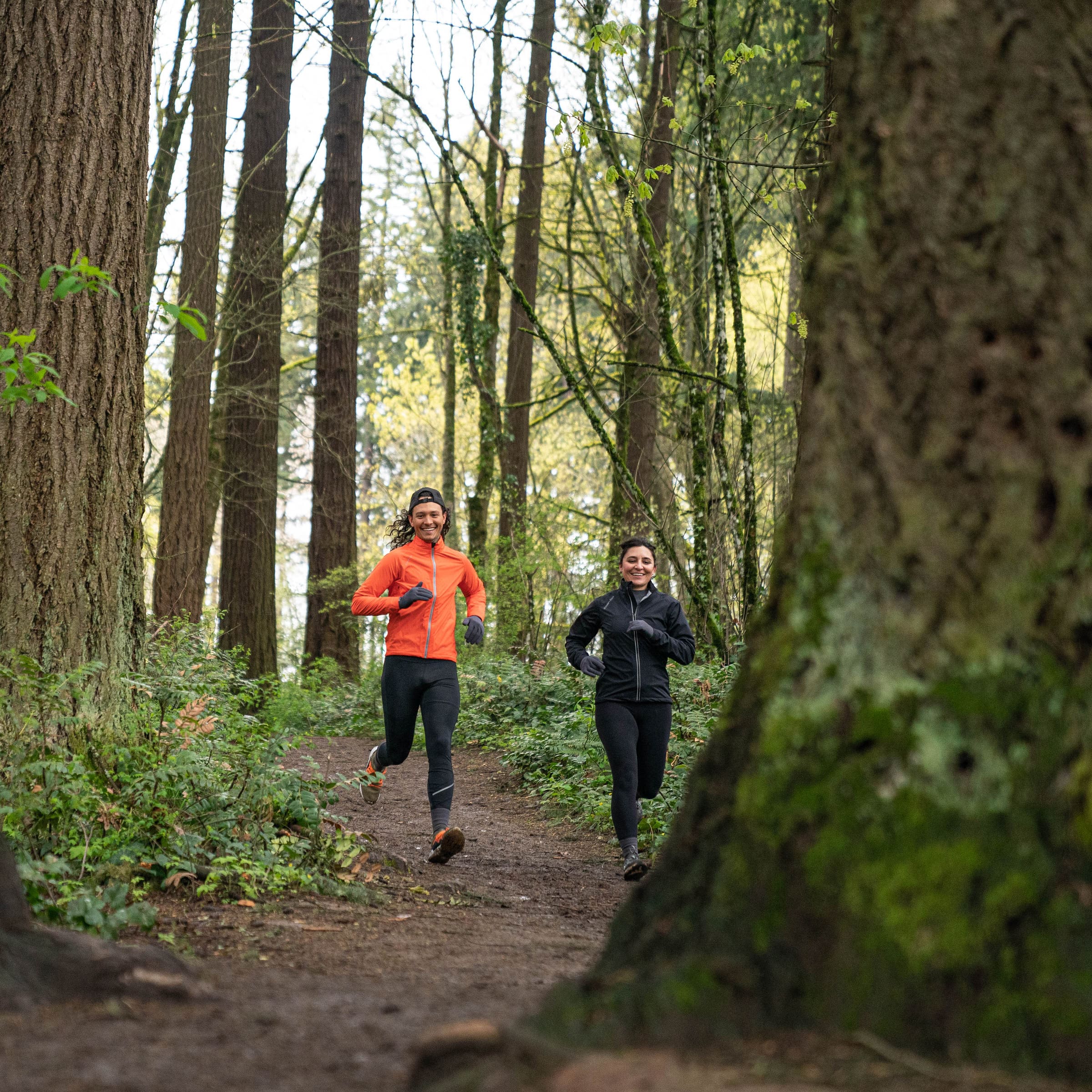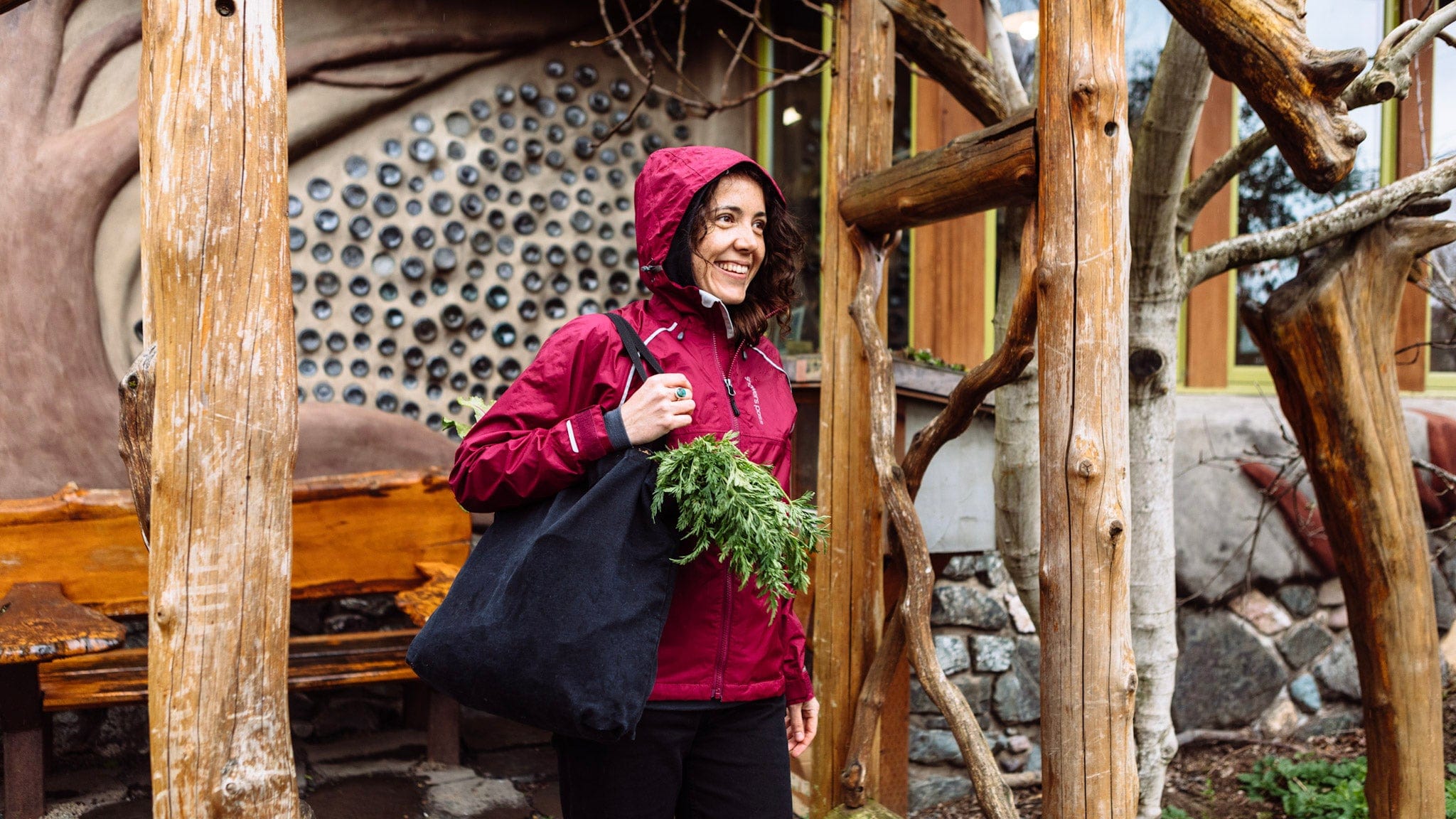Sustainability
Sustainability
Our Commitment to Sustainability:
Doing Right by Our Planet and People

Caring for our people and our planet has always been central to the way we do things. Through our gear we enable more time outside, which fosters a deeper connection to the natural world, and promotes genuine well-being. For over two decades, we've focused primarily on quality and durability in product development, earning us a reputation for long-lasting gear. While that does contribute to the sustainability of our business, it is not enough. That's why, in 2019, we took a deep look at how we operate to identify what more we needed to do to become climate positive. While we've been consciously doing the basics, we know it is not enough: so we have committed to specific, actionable goals for 2025.
The Long-Range Plan: Showers Pass Sustainability Goals for 2025
-
Recycled Content:
100% of our products with man-made materials will be made with a minimum of 50% or more recycled content.
-
Clean Colors:
All apparel will be made with bluesign® approved dyes in bluesign® approved factories.
-
Responsible Wool:
100% of wool will meet the Responsible Wool Standard, and be sourced from farms that treat animals humanely, where mulesing is not practiced.
-
Product End-of-Life Plan:
Showers Pass US will have a product end-of-life recycling program.
-
Reduce Packaging Impact:
All Showers Pass packaging will be made from Forestry Stewardship Council (FSC) certified wood or recycled material, and have the ability to be recycled or composted.
-
Responsible Energy Usage:
Showers Pass' US headquarters will be carbon positive, generating more energy than it consumes and we will encourage factory partners to get at least 50% of their energy from renewable sources as well.
Goal: Recycled Content
100% of our products with man-made materials will be made with a minimum of 50% or more recycled content. To clarify: across our total product line, for products where materials can be sourced as recycled, we are targeting 50% of those materials come from recycled sources by 2025. It wouldn't impact our wool products, for example, or any products where materials are renewable or unable to be sourced as recycled. We can't change the composition of our existing inventory, but we can make the change as we introduce new products or make incremental improvements to existing products.
Why It Matters
Man-made materials generally come from non-renewable sources, and often times end up in landfills or the ocean at the end of their lifecycle. By incorporating more recycled content into our products, we're reducing the energy used to produce new materials, and repurposing what would otherwise become waste in the environment. Balancing weather performance and ecological impact with materials is a challenge, but our signature approach of iteratively improving, experimenting and introducing new techniques will help us reach this balance.
Where We Are Today
As of Earth Day (22nd April) 2022, we've made great strides towards increasing the recycled content of our line. Despite the disruption caused the Coronavirus pandemic, we were still able to move towards greater recycled content used for man-made materials in our apparel. This year, we're releasing our first jackets with 100% recycled content, and another with bio-based material, coming in the fall. In 2020, 45% of the jackets we produced were made with at least 40% recycled content. In 2021, 15.66% of our full product line and 71% of our jackets contained at least some recycled man-made materials. As we replace items that are sold, we're finding ways to incorporate more recycled content into existing pieces.
Additionally, we continue to refurbish and resell returned garments that are not quite at end of life, offering them during our annual warehouse sale.
A "Recycled" Label is Not Enough
Including more recycled content in our products is among our goals, but it does not address the biggest environmental impacts of producing waterproof-breathable technical apparel. The energy used to power production facilities and the chemicals used in textile dyeing and production are often the cause of the most pollution in the manufacturing chain.
Goal: Clean Colors
All apparel will be made with bluesign® approved dyes in bluesign® approved factories. The bluesign® system works to combat the environmental impacts of textile dyeing by uniting the entire textile supply chain to jointly reduce its impact by eliminating substances posing risks to people and the environment from the beginning of the supply chain.

Why It Matters
It's about pollution, yes, but it's also about the impact managing these materials and processes have on on the people working with them, and their immediate communities. From the types of chemicals and materials used, to the protections in place for the people working with those materials, as well as how the byproducts are managed, bluesign® takes a holistic approach.
Where We Are Today
We are already using bluesign® certified dyes on our new Clean Color apparel collection, and plan to expand that line with each factory build, eventually moving to bluesign® certified dyes for all our products. The factory that produces 80% of our garments is already bluesign® certified, as is our primary fabric mill and we are committed to helping our other factory partners achieve bluesign® certification over the coming years. Learn more about the bluesign® system here.
We've also aligned our restricted substance list with which we require our manufacturing partners to comply with the bluesign® system. We don't use any DWR coatings that contain PFOS or PFOA. For each fabric, we consider the durability and impact on performance and environmental impact across the life of the product. When possible, we select DWR coatings that are PFC free. Recently we've observed great improvement in the performance of PFC free DWRs and we are excited to further reduce our use of PFCs.
Goal: Responsible Wool
100% of wool will meet the Responsible Wool Standard, and be sourced from farms that treat animals humanely, where mulesing is not practiced. While wool as a material is already renewable, durable, and generally more environmentally friendly than man-made materials, it's still important to ensure that our wool is sourced from farms which respect their livestock and land.
Why It Matters
The humane treatment of animals, which we believe is self-evident, is part of our commitment to environmental justice. Additionally, the best wool quality is only produced from healthy sheep, who in turn graze on healthy pasture and land. While wool is an organic material and biodegradable, it's still critical to ensure that the total impact of the farm is sustainable.
Where We Are Today
This year, in 2022, we're releasing RWS garments with each new re-order or new wool product. While our wool sources previously were already compliant, while maybe not certified, with many of the components of the Responsible Wool Standard. Our farms promote regenerative farming practices, for instance. Our newly received Apex T's, for example, are now RWS certified.
Goal: Product End-of-Life Program
Showers Pass US will have a product end-of-life recycling program. Incorporating recycled materials into the beginning of the product cycle is a great start, but what about all the product we have already produced? While our gear and apparel are designed to last, nothing lasts forever: and to prevent materials from occupying landfills or ending up in the ocean, we're committed to re-purposing or recycling content as much as is possible. To be effective, however, we need to make it easy for our customers to send things back, and put together a program that weighs the environmental costs of shipping the materials with repurposing them.
Why It Matters
When a jacket, pants, socks, or other product can't be used effectively any longer, that doesn't mean all of the materials in the item are useless. Wherever it is possible to reduce waste and re-use materials, we'll be saving more junk from landfills and oceans. It's especially important for clothing articles that contain petroleum-based materials, chemicals, and dyes, as these can have a lasting impact on the environment when they are simply thrown away.
Where We Are Today
As of Earth Day 2022, we continue to take used and returned products, and do our best to repair, clean, and offer them for resale. Each year, we hold a warehouse sale, where customers locally and nationally can purchase used items in person or online. In addition to giving new life to old products, we also have No Waste Wednesdays, where all packages are shipped in recycled boxes that have been sent back to us.
We continue to explore options and locally and elsewhere in the US to help us repurpose and recycle items that can't be repaired or returned to inventory, and roll out program to customers for returning items to be recycled.
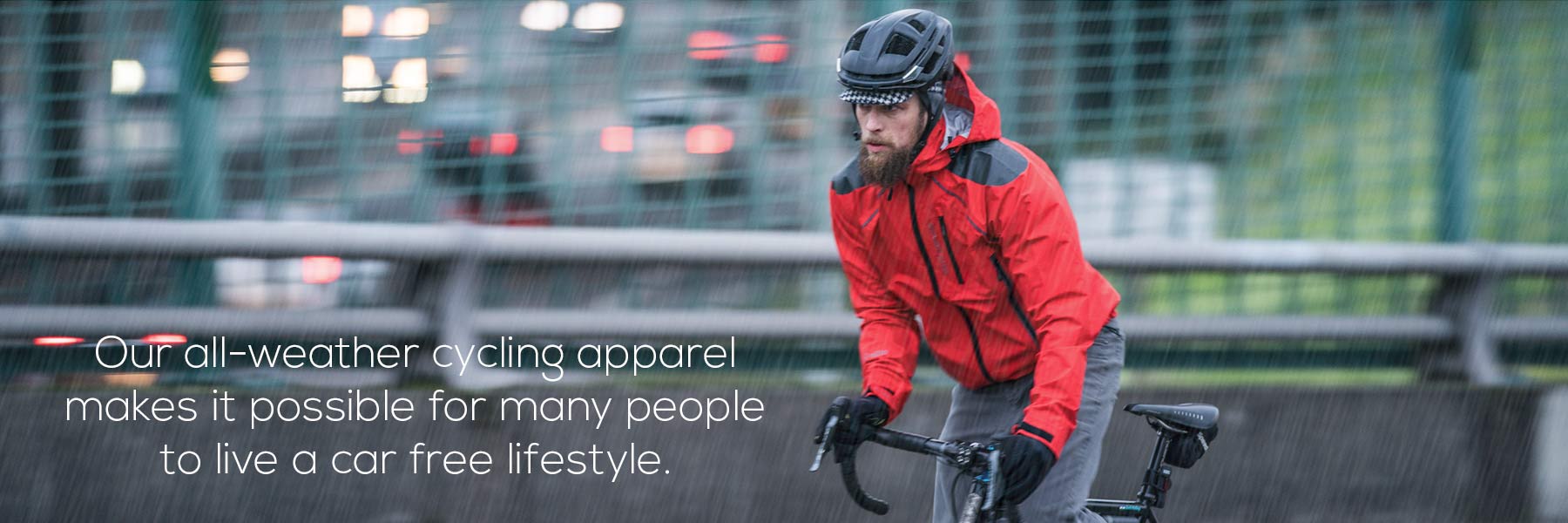
Goal: Reduce Packaging Impact
All Showers Pass packaging will be made from Forestry Stewardship Council (FSC) certified wood or recycled material, and have the ability to be recycled or composted. Overall, we want to reduce the impact we have on the environment through responsible packaging, which includes the source of paper as well as what happens to the packaging post-purchase.
Why It Matters
The apparel industry has normalized single use plastics and fancy printing and paper techniques that provide minimal advantages to retailers and brands and cause significant damage to the environment. It's common for brands and manufacturers tochoose the cheaper, yet more damaging, options to protect their margins, but ultimately, the world bears that expense through the damage wrought to the planet. Compounding this damage is the illogical perspective that the onus of how the packaging ends up in the environment is on the end consumer.
Where We Are Today
We're moving away from individual polybags for all new products ordered. We've replaced our plastic hang tags with safety pins and thread, and reduced our total paper usage in all our hang tags. The reduction in hang tag size on our outerwear for one style alone resulted in a savings of 70,000 square inches of card stock, a weight equivalent of 30lbs! We've also transitioned to using less packaging overall for our socks and gloves. Our hang tags are now made from recycled paper, uncoated, and can be recycled or composted.
Goal: Responsible Energy Usage
Showers Pass' US headquarters will be carbon positive, generating more energy than it consumes and we will encourage factory partners to get at least 50% of their energy from renewable sources as well. Being Carbon Neutral is awesome, but our goal is to get beyond that, and to generate more energy than we use, as well as reducing our footprint overall.

Why It Matters
The sources of energy, as well as the by-products of energy usage can be major contributors to global warming. Specifically, burning fossil fuels to power our vehicles and power our buildings add to the dramatic increase in carbon that is responsible for global warming. By utilizing less energy, and ensuring our energy is coming from renewable sources that do not produce excess carbon, we can make a difference.
Where We Are Today
For 2020 we became certified Climate Neutral, offsetting our entire carbon footprint. Our credits (1,486 tCO2e) came from forests. Many of our employees bike to work every day, and we now have an all-electric company vehicle. We use 100% renewable energy to power our building, including wind and solar. In 2020, we used 12,060 kWh of renewable energy, preventing 18,799lbs of carbon dioxide from entering the air. Our goal is to be carbon positive in our US offices by 2025, looking at ways we can conserve and generate energy as part of our operations.
